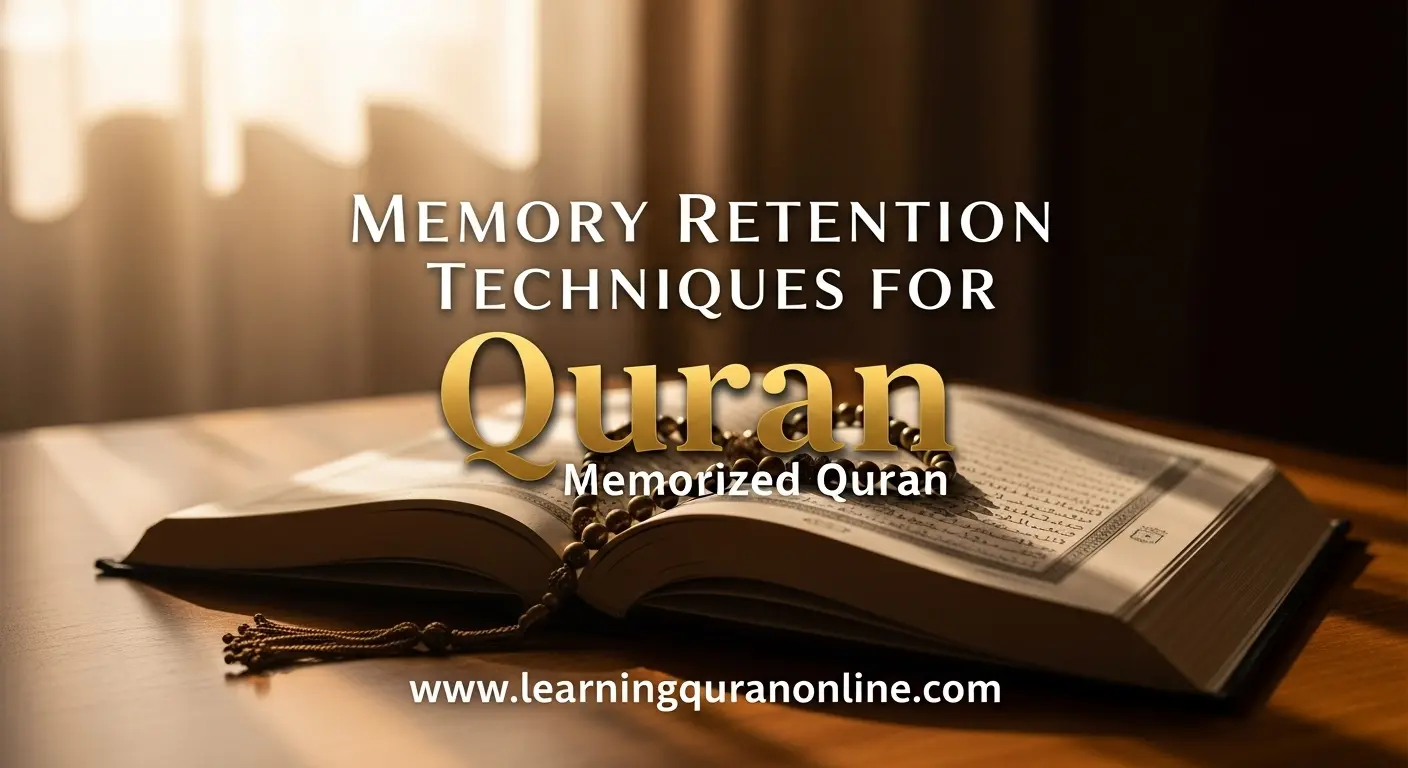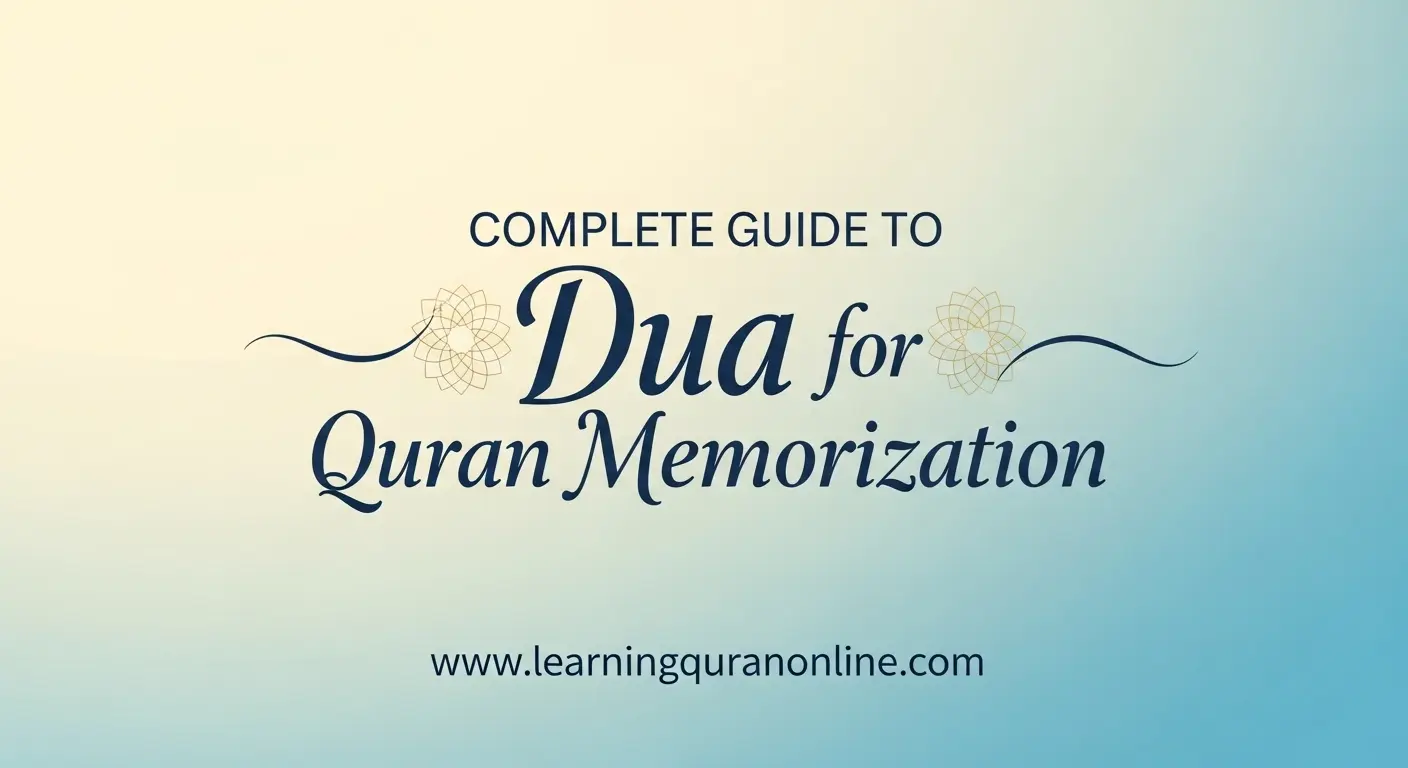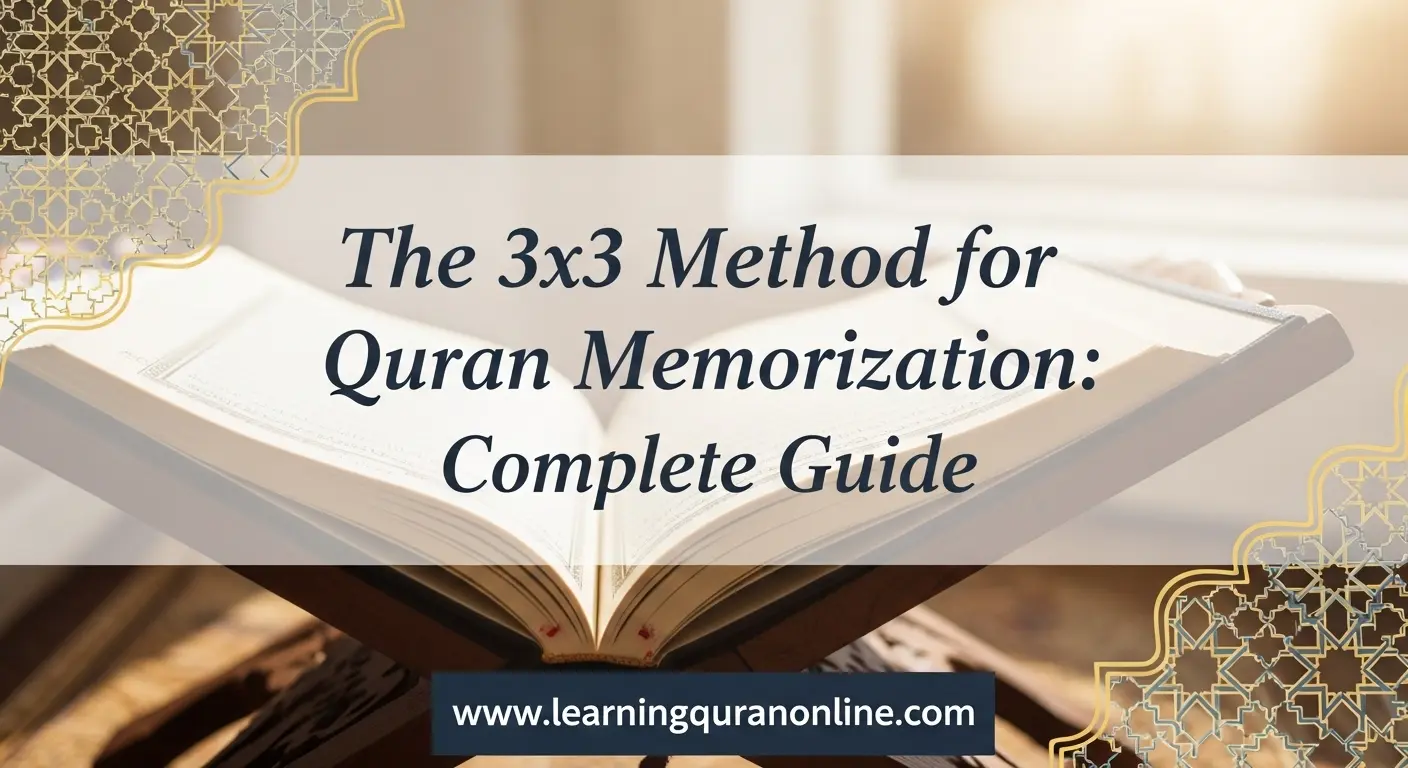Table of Contents
ToggleWhy Choose Online Quran Memorization?
Online Quran memorization offers flexibility, personalized teaching, and access to qualified teachers worldwide. Whether you’re a working adult, a busy parent, or a student who prefers one-on-one virtual lessons, an online hifz program can adapt to your schedule and learning pace. Benefits include:
- Flexible schedules and time-saving lessons
- Qualified Quran teachers and certified Hafiz tutors
- Personalized memorization plans and feedback
- Use of technology: audio recordings, video playback, and apps
- Affordable options compared to some in-person madrasas
Getting Started: Assessment and Goal Setting
Begin your online memorization journey with a clear plan. Assessment and goal-setting are the foundation of a successful hifz program.
Key steps to get started:
- Initial Assessment: Have the tutor evaluate your current Quran reading level, tajweed skills, and existing memorization (if any).
- Set Realistic Goals: Define short-term (e.g., 1-2 pages per week), mid-term (complete a Juz in X months), and long-term goals (complete full Hifz).
- Create a Schedule: Decide on lesson frequency (daily or several times per week), lesson length (20–60 minutes), and revision sessions.
- Choose the Right Format: One-on-one tutoring is ideal for personalized memorization; small group classes can provide peer motivation.
Best Online Hifz Programs Compared
Choosing the Right Online Quran Tutor or Course
Selecting the correct tutor or online Quran memorization course can make the difference between steady progress and frustration. Look for these attributes:
- Qualified tutors with hifz credentials and strong tajweed knowledge
- Experience teaching different age groups and learning styles
- Structured hifz curriculum and a clear memorization plan
- Provision of audio/video recordings for review
- Good teacher-student communication and progress reports
When researching, ask for trial lessons and references. Reputable online academies often offer a free trial class or demo to help you decide.
Memorization Techniques: Methods That Work
Effective memorization is not just repetition — it’s strategic repetition combined with understanding and consistent review. Here are proven techniques used in online Quran memorization:
- Chunking: Break down verses into small, manageable segments (words, phrases, or half-verses) and memorize piece by piece.
- Repetition and Recitation: Repeat each segment out loud multiple times until it feels natural.
- Listening and Shadowing: Listen to a qualified reciter or your tutor and recite immediately after (shadowing) to cement pronunciation and rhythm.
- Write It Out: Writing verses by hand reinforces memory and helps with visual recognition.
- Use the Same Teacher Initially: Consistency in recitation style helps prevent confusion in pronunciation and tajweed.
- Review Immediately: Always revise newly memorized verses several times within the first 24 hours.
Tajweed and Pronunciation in Online Hifz
Proper tajweed is essential to preserve the Quran’s meaning and ensure correct recitation. In online Quran memorization, tutors focus on articulation (makharij), rules of noon sakin and tanween, madd (elongation), and other tajweed rules. Make sure your online course includes:
- Systematic tajweed lessons alongside memorization
- Practice drills for common pronunciation errors
- Audio feedback and corrective recordings from the teacher
Creating a Daily Revision Plan (Spaced Repetition)
Revision is the backbone of long-term retention. A solid revision plan uses spaced repetition principles — shorter, more frequent reviews that widen in interval over time. A typical revision schedule might look like:
- Daily: Revise the new portion and previous day’s memorized verses
- Weekly: Review all verses memorized that week
- Monthly: Go through larger sections (Juz or several Surahs)
- Quarterly: Full review of previously memorized parts to prevent forgetting
Use digital calendars, reminders, and apps to automate revision sessions. Keep a memorization log to track which verses are “strong,” “needs work,” or “weak.”
Using Technology: Apps, Recordings, and Virtual Classrooms
Technology amplifies the effectiveness of online Quran memorization. Below are tools that support memorization and revision:
- Video Conferencing Platforms: Zoom or Google Meet for live one-on-one sessions
- Recording Tools: Students record recitation for teacher feedback and self-review
- Quran Apps: Apps with repeat-play, verse-by-verse audio, and memorization modes
- Spaced Repetition Software: Digital flashcards and schedules to prompt review
- Online Libraries: Access to multiple reciters for listening practice
Motivation and Accountability: Staying on Track
Memorization requires consistency and inner motivation. Techniques to stay motivated:
- Set mini-goals and celebrate milestones (e.g., finishing a Surah)
- Join hifz groups or pair with a memorization partner for mutual accountability
- Record and compare recitations month-to-month to notice progress
- Involve family support — especially important for children
Common Challenges and Practical Solutions
Students often face specific hurdles during online Quran memorization. Here are common problems and solutions:
- Difficulty Retaining Verses: Increase frequency of short revision sessions and use audio shadowing.
- Tajweed Mistakes: Schedule targeted tajweed drills with your tutor and record recitations for correction.
- Time Management: Fit short 15–20 minute sessions into daily routine rather than long, infrequent sessions.
- Lack of Motivation: Set rewards, track progress visually, and join a supportive community or class.
Assessments, Certifications, and Graduation
Structured online hifz programs include periodic assessments to ensure accuracy and retention. Typical assessment formats:
- Oral recitation tests (muraaja’ah) with a certified teacher
- Written tests focusing on ability to locate verses and understand tajweed rules
- Final hifz examinations for those completing a full memorization program
Upon successful completion, students may receive certificates and formal recognition. For many, passing a final recitation to a qualified Hafiz is the traditional way to become certified as a Hafiz of the Quran.
Tips for Parents and Adult Learners
Parents supporting young memorization students should focus on routine, encouragement, and a distraction-free space. Adults should balance work and family commitments with realistic scheduling. Practical tips:
- Create a quiet, consistent memorization corner at home
- Prioritize short, daily practice times (before Fajr or after Maghrib are popular)
- Use positive reinforcement: praise, small rewards, and public recognition
- Choose a tutor who can adapt methods for children or adult learning styles
How to Measure Progress
Tracking progress helps you stay motivated and identify areas that need attention. Use these metrics:
- Number of verses or pages memorized per week
- Tajweed error rate (decrease over time)
- Retention score during monthly reviews
- Teacher feedback and assessment reports
Choosing a Reliable Online Quran Academy
When selecting an academy for your online Quran memorization, evaluate: curriculum structure, teacher qualifications, testimonials, trial sessions, and available technology for lessons and revision. For example, Learning Quran Online offers structured hifz programs with experienced Quran tutors, flexible schedules, and a focus on tajweed and retention.
Final Thoughts: Start Smart, Finish Strong
Online Quran memorization is both a spiritual and intellectual achievement. With a clear plan, the right tutor, consistent revision, and the smart use of technology, students can successfully complete the journey to becoming a Hafiz. Remember: patience, persistence, and sincerity are the keys. Begin with small, consistent steps, track your progress, and seek support from qualified teachers and a supportive community.
If you’re ready to begin, choose a course that matches your learning style, set realistic goals, and commit to a consistent revision routine. The path to memorizing the Quran online is accessible, rewarding, and life-changing.
















